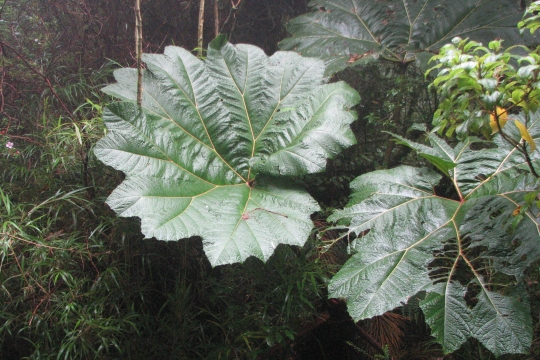This thesis consists of five papers dealing with fairly heterogeneous issues, based on the problems or topics analyzed, but also based on the methodologies used to approach them. The overriding motives are the design of environmental policies in the context of a typical developing country (where Costa Rica is used as a representative of such countries), and the study and application of techniques that can provide the necessary information for policy-making.
Paper 1: “Using Choice Experiments for Valuing the Environment” (with F.Carlsson and P. Martinsson)
This paper provides the latest research developments in the method of choice experiments applied to valuation of non-market goods. Choice experiments, along with the, by now, well-known contingent valuation method, are very important tools for valuing nonmarket goods and the results are used in both cost-benefit analyses and litigations related to damage assessments. The paper should provide the reader with both the means to carry out a choice experiment and to conduct a detailed critical analysis of its performance in order to give informed advice about the results. A discussion of the underlying economic model of choice experiments is incorporated, as well as a presentation of econometric models consistent with economic theory. Furthermore, a detailed discussion on the development of a choice experiment is provided, which in particular focuses on the design of the experiment and tests of validity. Finally, a discussion on different ways to calculate welfare effects is presented.
Paper 2: “Policy Implications and Analysis of the Determinants of Travel Mode Choice: An Application of Choice Experiments to Metropolitan Costa Rica” (with F. Carlsson)
In this paper we study a group of policies aimed at discouraging the use of private transportation during peak hours, both directly and indirectly, by increasing the attractiveness of the only available substitute, the bus. This is done using a choice experiment constructed to find the answer to the following basic question: Given fixed house-to-work structures and no working hour flexibility, by how much is the choice of travel mode for commuters to work sensitive to changes in travel time, changes in costs for
each mode and other service attributes? This information is then used to identify the most
suitable combination of policies dealing with air pollution and congestion in the typical
developing country context of metropolitan Costa Rica. We also provide estimates of the
value of travel time as a measure of the potential benefits gained from reduced congestion.
Paper 3: “How much do we care about absolute versus relative income and
consumption?” (with F. Carlsson and O. Johansson)
We find, using survey-experimental methods, that most individuals are concerned with
both relative income and relative consumption of particular goods. The degree of concern
varies in the expected direction depending on the properties of the good. However, contrary
to what has been suggested in the previous literature, we find that relative consumption is
also important for vacation and insurance, which are typically seen as non-positional goods.
Further, absolute consumption is also found to be important for cars and housing, which are
widely regarded as highly positional. Implications for Pareto-efficient taxation are
illustrated using the results from the experiment.
Paper 4: “Collective versus Random Fining: An Experimental Study on Controlling
Non-Point Pollution” (with Prof. Till Requate)
This paper presents an experimental study of collective vis-à-vis random fining as
means to regulate non-point pollution. Using samples from both managers from Costa-
Rican coffee mills, and Costa-Rican students we confirm the hypothesis that the two games
are equivalent and, in the majority of cases, lead to efficient outcomes through Nash play.
However, we reject the hypothesis that managers and students behave equally. Off the
equilibrium managers tend to over-abate, whereas students tend to under-abate. This result
suggests the importance of considering subject pool differences in the evaluation of
environmental policies by means of experiments, particularly if those policies involve
certain forms of management decisions.
Paper 5: “The Pricing of Protected Areas in Nature-Based Tourism: A Local Perspective
This paper seeks to provide the theoretical underpinnings for the optimal pricing of
protected areas used in recreation, from the perspective of a local park agency interested in
maximizing welfare subject to a budget constraint. The theoretical model incorporates
several relevant issues, including third degree price discrimination based on visitor type,
public versus private benefits and costs, economy-wide impact of changes in entrance fees,
congestion costs and investment in quality. The model also includes a distributional
dimension that is very relevant for the case of international nature-based tourism in poorer,
less developed countries. Based on this foundation and using visitation data from the Costa
Rican National Park System, the paper provides an estimation of the optimal entrance fees
and associated revenues under the assumption, due to the lack of information, of no
congestion or spill over effects. Still, the theoretical model allows the analysis of those
effects taking the assumed case as a baseline.

